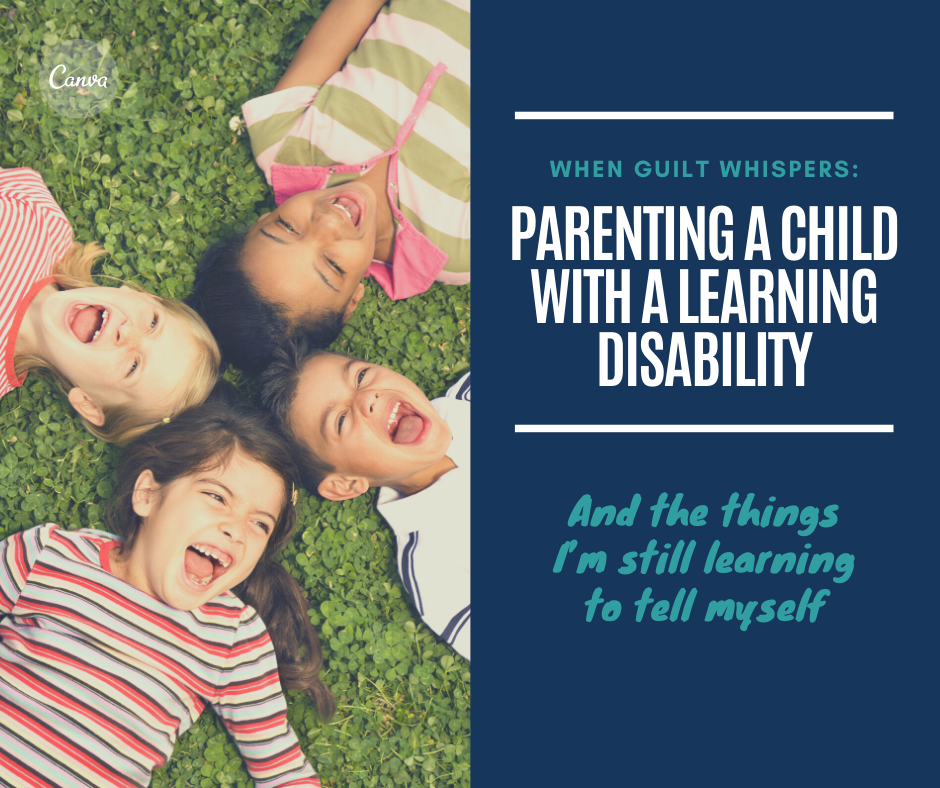When Guilt Whispers: Parenting a Child With a Learning Disability
- Therese Ajtum-Roberts Ed.D.
- Aug 27, 2025
- 3 min read
Updated: Sep 8, 2025
And the things I’m still learning to tell myself

Experts aren’t exactly sure what causes learning disabilities. Some possibilities include differences in brain development, birth-related factors, environmental exposures, and—yes—genetics. Learning disabilities often run in families. Many people with learning disabilities have parents, siblings, or other relatives with similar patterns of struggle.
That’s the part that’s hard to say out loud. Because if I carry something like this… did I pass it on to her?
I know I’m not the only parent who’s had this thought. But most of us don’t admit it, not even to ourselves. So I’m writing it here, because silence can turn into shame—and there’s enough of that already.
What if…
What if I had gotten her evaluated earlier? What if I hadn’t enrolled her in the dual-language program? What if I’d seen the signs sooner? Would she still be two years behind in reading and writing? Would school feel easier if she only had to learn in one language instead of two? Was I too optimistic? Too late? Too distracted? Too slow?
The questions swirl.
But somewhere underneath them all is fear—not just fear about academics, but fear that someone will tease her. That a teacher might embarrass her. That she might feel “less than.” That she might not like herself because she learns differently.
I know I’m supposed to challenge these thoughts. I know the facts:
I didn’t cause her learning disability.
I’m doing the best I can with the knowledge I have.
My daughter’s disability doesn’t define her—it’s part of her, but not all of her.
Kids with learning disabilities can thrive, succeed, and change the world.
But knowing those things doesn’t mean the hard feelings go away. And it doesn’t make it easier to sit on the sidelines while she builds her own resilience.
When comparison creeps in
I watch her struggle to solve a math problem, grinding through steps she’s already done ten times. Her younger sister—just entering second grade—breezes through multiplication tables without breaking a sweat.
I see it. And I know she sees it too.
Once she asked me, “Will Victoria learn like me?” Maybe it was curiosity. But my gut told me it was something more—maybe a whisper of jealousy, or grief, or both. The quiet noticing that some things come easier to others than they do to her.
And again, the guilt returns—not because of what she feels, but because I can’t take that feeling away.
But then she said something I’ll never forget
Last year, she was won a “Silent Action” prize and had lunch with the Superintendent. When she came home, she told me she’d wanted to say something to him. What she said stopped me in my tracks:
“I wanted to tell him he needs more teachers who know how to teach students like me. I’m lucky to have a mom like you who understands how I learn and can explain it to my teachers. Most kids like me don’t have that.”
In that moment, I realized she sees me—not just as a parent, but as someone who gets it. Someone who can translate her experience into words that adults and educators will understand.
And in that same breath, she gave me a gift: a reminder that while I may have passed on some of my struggles, I’ve also passed on strengths. Advocacy. Insight. Language. Self-awareness. Pride.
It’s okay to hold both
I can love her, celebrate her, and fight for her—while still carrying grief and guilt that sneak in at quiet moments. I can wish things were easier for her—while also knowing her journey will shape her into someone fierce, empathetic, and resilient. I can worry—while also believing in her with everything I have.
And maybe you feel that too. If so, please know this:
You are not alone. You are not to blame. And your vulnerability, your honesty, your love—that’s what your child will remember most.




Comments